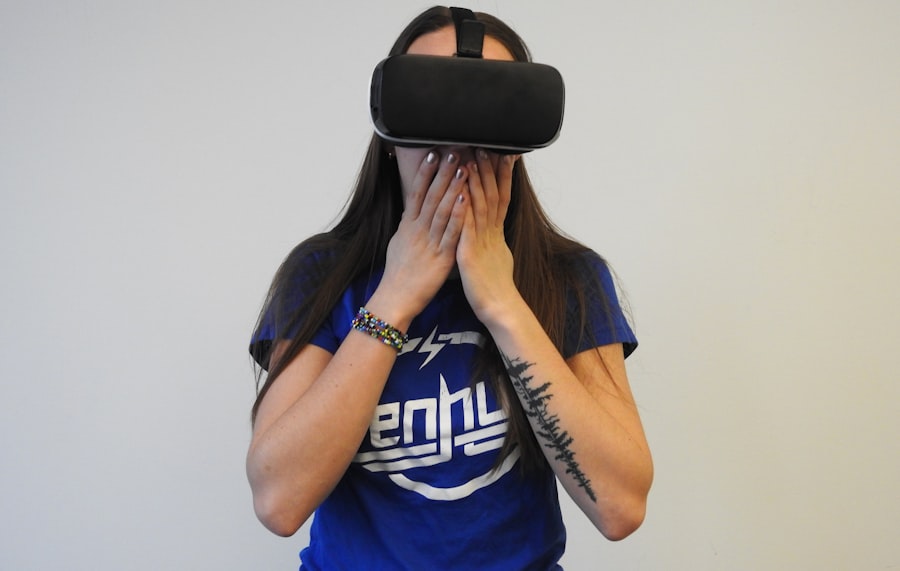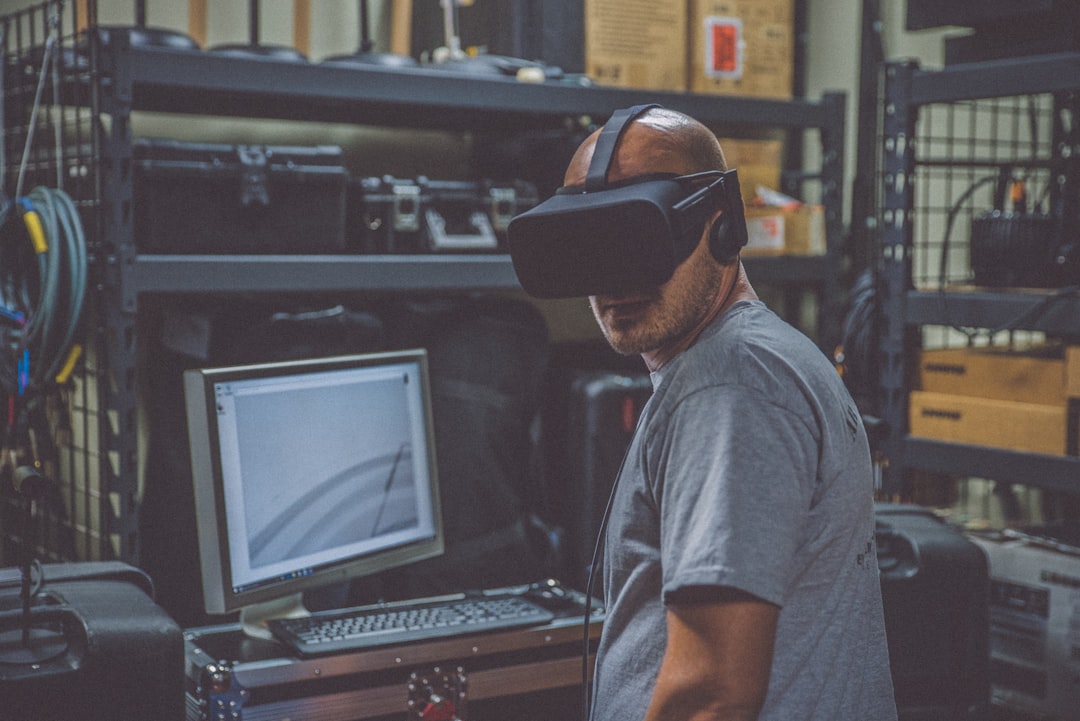The concept of the Metaverse has evolved from a niche idea in science fiction to a burgeoning reality that captivates technologists, businesses, and consumers alike. Originally popularized by Neal Stephenson in his 1992 novel “Snow Crash,” the Metaverse is envisioned as a collective virtual space that merges physical and digital realities, allowing users to interact with each other and digital environments in real-time. This immersive universe is characterized by its persistent nature, meaning it continues to exist and evolve even when individual users log off.
As technology advances, particularly in areas such as virtual reality (VR), augmented reality (AR), and blockchain, the Metaverse is becoming increasingly accessible and complex. The Metaverse is not merely a single platform or application; rather, it encompasses a wide array of interconnected virtual environments, social networks, and digital economies. Users can create avatars, engage in social interactions, attend events, and even conduct business transactions within these spaces.
The rise of the Metaverse has been fueled by the growing popularity of online gaming, social media, and digital commerce, leading to a convergence of these elements into a cohesive virtual experience. As more individuals and organizations recognize the potential of the Metaverse, it becomes essential to explore the academic research surrounding this phenomenon to understand its implications fully.
Key Takeaways
- The Metaverse is a virtual reality space where users can interact with a computer-generated environment and other users.
- Google Scholar is a valuable research tool for accessing academic papers, theses, and articles related to the Metaverse.
- Research on the Metaverse is rapidly growing, with an increasing number of studies being conducted in various disciplines.
- Key themes and trends in Metaverse studies include virtual identity, social interaction, and the impact of technology on human behavior.
- Interdisciplinary perspectives on the Metaverse encompass fields such as computer science, sociology, psychology, and communication studies.
Google Scholar as a Research Tool
Google Scholar serves as a powerful resource for researchers seeking to delve into the vast body of literature surrounding the Metaverse. This freely accessible search engine indexes scholarly articles, theses, books, conference papers, and patents across various disciplines. Its user-friendly interface allows researchers to quickly locate relevant studies and access full-text documents when available.
By utilizing Google Scholar, scholars can track citations, explore related works, and stay updated on emerging trends in Metaverse research.
Researchers can find articles from established academic journals alongside preprints and grey literature, providing a comprehensive view of ongoing discussions in the field.
The platform also facilitates collaboration by enabling users to create personal profiles that showcase their publications and research interests. This feature fosters networking opportunities among scholars and encourages interdisciplinary dialogue, which is particularly important given the multifaceted nature of the Metaverse.
The Growth of Metaverse Research

In recent years, there has been a notable surge in academic interest surrounding the Metaverse. This growth can be attributed to several factors, including advancements in technology, increased investment from major corporations, and a growing public fascination with virtual worlds. As companies like Meta (formerly Facebook), Microsoft, and Epic Games pour resources into developing their own Metaverse platforms, researchers are compelled to examine the implications of these developments from various angles.
The proliferation of research on the Metaverse is evident in the increasing number of publications dedicated to this topic. Academic conferences focused on virtual reality, digital culture, and human-computer interaction have begun to feature sessions specifically addressing the Metaverse. Furthermore, interdisciplinary collaborations are emerging as scholars from fields such as computer science, sociology, psychology, and economics come together to explore the complexities of this digital frontier.
This collaborative spirit is essential for understanding the multifaceted nature of the Metaverse and its potential impact on society.
Key Themes and Trends in Metaverse Studies
| Key Themes and Trends | Metrics |
|---|---|
| Virtual Reality | Increasing adoption in gaming and entertainment |
| Social Interaction | Rise of virtual communities and social platforms |
| Economy | Growth of virtual goods and digital economies |
| Technology | Advancements in VR/AR hardware and software |
| Identity and Representation | Exploration of avatars and self-expression |
As researchers delve into the Metaverse, several key themes and trends have emerged that warrant attention. One prominent theme is the exploration of user experience within virtual environments. Scholars are investigating how design elements—such as interface usability, avatar customization, and spatial awareness—affect user engagement and satisfaction.
Understanding these factors is crucial for creating immersive experiences that resonate with users and encourage long-term participation. Another significant trend is the examination of economic models within the Metaverse. As virtual economies flourish, researchers are analyzing how digital currencies, non-fungible tokens (NFTs), and virtual goods are reshaping traditional notions of value and ownership.
The rise of decentralized finance (DeFi) within these spaces presents both opportunities and challenges for users and creators alike. By studying these economic dynamics, scholars can provide insights into how virtual economies may influence real-world financial systems.
Interdisciplinary Perspectives on the Metaverse
The complexity of the Metaverse necessitates an interdisciplinary approach to research that draws from various fields of study. Computer scientists contribute technical expertise in areas such as VR development, artificial intelligence (AI), and blockchain technology. Meanwhile, social scientists examine the cultural implications of virtual interactions, exploring how identity formation and community dynamics manifest in digital spaces.
Psychologists are also playing a crucial role in understanding user behavior within the Metaverse. Research into how individuals perceive their avatars, experience presence in virtual environments, and navigate social interactions can inform design choices that enhance user engagement. Additionally, legal scholars are beginning to address issues related to intellectual property rights, data privacy, and governance within the Metaverse.
This interdisciplinary collaboration enriches the discourse surrounding the Metaverse and fosters a more comprehensive understanding of its implications.
Ethical and Societal Implications of the Metaverse

As the Metaverse continues to expand, ethical considerations become increasingly important. One pressing concern is data privacy; users often share personal information while engaging in virtual environments. Researchers are investigating how data collection practices within the Metaverse may infringe upon user privacy rights and what measures can be implemented to safeguard sensitive information.
Moreover, issues related to digital equity are gaining attention as well. The Metaverse has the potential to create new opportunities for social interaction and economic participation; however, access to these virtual spaces is not uniform across different demographics. Scholars are examining how socioeconomic factors influence individuals’ ability to engage with the Metaverse and what steps can be taken to ensure inclusivity in these digital realms.
Addressing these ethical concerns is vital for fostering a responsible approach to Metaverse development that prioritizes user welfare.
Future Directions for Metaverse Research
Looking ahead, several promising directions for Metaverse research are emerging. One area ripe for exploration is the impact of emerging technologies on user experiences within virtual environments. As advancements in AI continue to reshape how users interact with digital content—through personalized recommendations or intelligent avatars—researchers will need to assess how these innovations affect user engagement and satisfaction.
Additionally, as more organizations adopt hybrid work models that incorporate virtual collaboration tools, understanding how the Metaverse can facilitate remote work will be crucial. Researchers can investigate how virtual meeting spaces influence team dynamics, productivity, and employee well-being. This line of inquiry could yield valuable insights for businesses seeking to optimize their operations in an increasingly digital landscape.
The Potential of the Metaverse
The Metaverse represents a transformative shift in how individuals interact with technology and each other. As research continues to expand in this area, it becomes clear that understanding its complexities requires a multifaceted approach that encompasses technological advancements, user experiences, economic models, ethical considerations, and societal implications. The potential applications of the Metaverse are vast—from revolutionizing entertainment and social interaction to reshaping education and commerce.
As scholars from diverse disciplines come together to explore this digital frontier, they will play a pivotal role in shaping our understanding of the Metaverse’s impact on society. By addressing key themes such as user experience design, economic dynamics, ethical considerations, and future technological advancements, researchers can contribute valuable insights that inform responsible development practices within this evolving landscape. The journey into the Metaverse is just beginning; its full potential remains to be realized as we navigate this uncharted territory together.
A related article to the concept of the metaverse can be found in the article “Challenges and Opportunities in the Metaverse: Privacy and Security Concerns” on Metaversum.it. This article delves into the potential risks and benefits of navigating virtual spaces and the importance of addressing privacy and security concerns in the metaverse. To learn more about this topic, you can read the full article here.
FAQs
What is the metaverse?
The metaverse is a collective virtual shared space, created by the convergence of virtually enhanced physical reality and physically persistent virtual reality. It is a concept that has gained popularity in recent years, especially in the context of virtual reality and augmented reality technologies.
What is Google Scholar?
Google Scholar is a freely accessible web search engine that indexes the full text or metadata of scholarly literature across an array of publishing formats and disciplines. It is a popular tool for academics and researchers to find scholarly articles, theses, books, preprints, abstracts, and court opinions from academic publishers, professional societies, online repositories, universities, and other web sites.
How can I find articles about the metaverse on Google Scholar?
To find articles about the metaverse on Google Scholar, you can simply enter “metaverse” into the search bar and press enter. This will bring up a list of scholarly articles related to the metaverse. You can also use specific keywords related to the metaverse, such as “virtual reality,” “augmented reality,” “virtual world,” etc., to narrow down your search results.
Can I access articles on Google Scholar for free?
While Google Scholar provides access to a vast array of scholarly articles, not all articles are freely accessible. Some articles may require a subscription or payment to access the full text. However, many articles on Google Scholar are available for free, especially those from open access journals or repositories.
Is Google Scholar a reliable source for academic research?
Google Scholar is a widely used and respected tool for academic research. It indexes a large number of scholarly articles and provides a convenient way for researchers to access academic literature. However, it is important to critically evaluate the sources found on Google Scholar, as not all indexed articles may be peer-reviewed or of high quality.

Leave a Reply